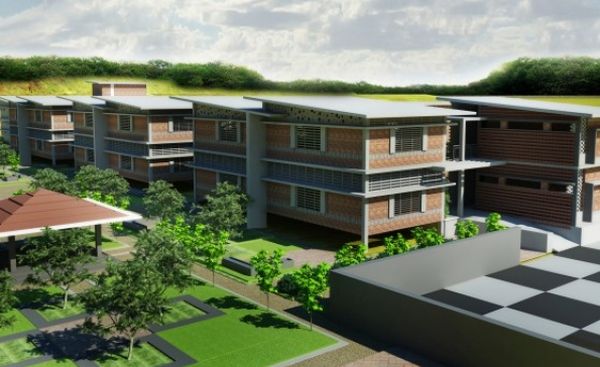
A startlingly dismal figure according to UNICEF reveals that – there are an estimated 250 million children aged 5 to 14 in child labour worldwide, and that too excluding the bulk of child domestic labor. Campaign Against Child Labour (CACL) estimated that among this drastically high number, there are between 70 and 80 million child laborers only in India. Now added to that, India is also considered to have one of the highest numbers of orphans. In view of such severe circumstances, Peterborough-based charity HEAL (Health and Education for All) has come up with a speckle of hope, but hope nevertheless, in the form of their sustainable village design for 1000 destitute children.
This conscientious conception aptly christened as the ‘Paradise Village’ is already touted to be the most ambitious project from HEAL, costing around £3 million. It will be based in the south-eastern Indian state of Andhra Pradesh. The location will be a paradisiacal 26-and-a-half acre site in Thotapally, completely surrounded by water, and will incorporate a plethora of convenient features like shelter, support, education and healthcare for children. The efficient zoning will constitute of spatial elements such as school, family-style dormitories, an eye hospital and a myriad of recreational facilities, including visitor’s centre, auditorium, artistic and manual workshops. They will combine to maintain the ambiance of a traditional Indian ‘gurukul’ system.
Now coming to the sustainable part, the whole village design will pursue a holistic approach to green technology. Solar energy, wind power from turbines on a nearby hillock and even geothermal energy will be utilized to their full potential. Added to that there will be hydroponic vegetable gardens, solar cooking and water recycling systems integrated within the space. Ingenious design considerations like vaulted roofs would reduce structural costs by 45 per cent and negate the need for steel. And at last but not the least, the process of incorporating landscaping elements with extensive green cover and planting of fruit bearing and shady trees has already been started, to accentuate upon the level of total sustainability.
Source: PeterboroughToday




